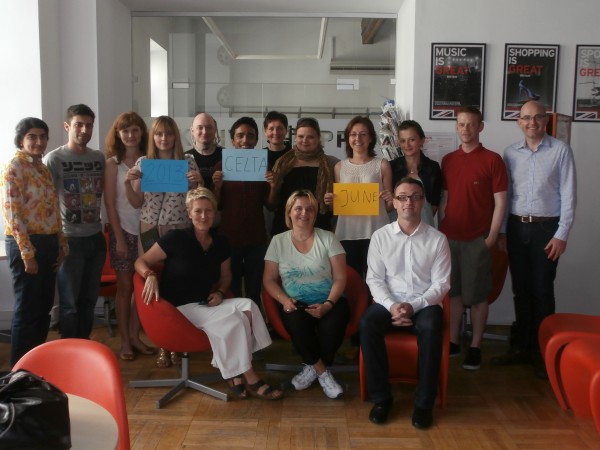
I have recently returned from Krakow, where I spent a part of my summer break to receive my Certificate in English Language Teaching to Adults at the British Council. As a consequence, many people now ask me if I would see myself teaching English for a great part of my life. This led me to re-think and introspect deeply the reasons for going through four weeks of rigorous training in English language teaching. At the time when I registered for this course, I was teaching at a Teachers’ Training Institute in Pakistan. Although I was not hired as an English Language teacher, I was asked to impart the knowledge of English onto the students, as lack of fluency in English is a great hindrance in finding jobs and earning a decent living.
For two years now, I have been living in a part of Europe where English is a language without any colonial history attached to it. As I was growing up in Pakistan, however, knowledge of English determined the social class. The English-speaking Pakistani class is so small in number, that its representatives can still even be counted and form an educated minority in Pakistan. English middle schools charge exorbitantly, making it difficult for the common people to have access to this language. Not only are the common people marginalized in knowledge, but they also remain alien to the culture of the English-speaking population. And the social distance between the English and the non-English-speaking population has widened in Pakistan since the country’s independence from the British in 1947. My father often tells of what it used to be like to grow up in a newly independent country, making me more aware of the way the English language has affected the relationship the Pakistani people have, by and large, with the Western culture.
My father grew up in one of the poorest families in British India – poor and unknown immigrants, who had the will to change not only their own destiny, but also the lives of the others around them. Despite his having received an education in the UK and his desire for all of his children to learn English, he did not let us lose our ‘inner thread’ and inner voice, which, I think, British colonization has disturbed terribly, especially in developing post-colonial Muslim countries, such as Pakistan. The knowledge of English changes your social status, and with that comes a huge bundle of ‘capitalist’ responsibilities: you ought to educate your children in elite schools in the UK or North America; you even ought to change what you eat. If before you ate simple home-grown wheat, you now ought to buy what your friends call ‘Bio’ products. People from my father’s generation tended to be straightforward thinkers, and had the clarity of purpose which the people from my generation now seem to lack. They stumble about, trying to impress either the English-speaking Westerners or the Urdu-speaking conventionalists. But not all is lost…
As I was teaching at the Teachers’ Training Institute in Pakistan, I discovered how badly this language needs to be taught. And I have always wanted to teach this language without burdening my students to acquire it for the sole purpose of raising their social class. During my time at ECLA of Bard, I have come to form a very distinct relationship with English. This language has offered me the possibility of accessing many historical texts written in a variety of languages and translated into English. This language has also opened for me the doors to other Western languages. And it was while here, at ECLA of Bard, that I realized how English can be a language simply to be learnt for the sake of acquiring a type of knowledge – one that is different from what is available in the Orient or the East. As I travelled to Poland to acquire my Certification, I had found a very useful purpose for learning English. The language I have mastered all my life was not just to impress the local population with my Western and modern mannerism. I knew that English had for me a useful purpose, and my experience in Poland only validated this. As I taught English to Polish students, I saw myself teaching a language to help people discover another world. During the month I spent at the British Council, we were trained to teach English the same way as Mathematics. I could observe the practical usage of English and its importance for international speakers who thus had access to literature, job markets or knowledge available in English, without having to worry about their social status in society.
